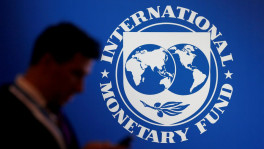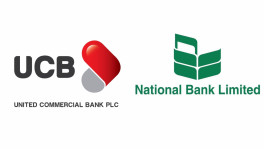Standard Chartered commits $75bn to SDGs
The bank also commits to net zero carbon emissions from its operations by 2030

Standard Chartered on Sunday committed $75 billion to support its clients as it transitioned to a low carbon economy as part of its sustainability aspirations.
By the end of 2024, the bank pledged to provide $40 billion for infrastructure that promotes sustainable development and $35 billion for renewables and clean tech projects (solar and wind).
Underpinning the aspirations, Standard Chartered also intended to reduce its emissions across its global properties by 2030.
With an office footprint spanning 60 countries including many large emerging markets, the bank will achieve net zero emissions by only sourcing energy from renewable sources and continuing to pursue energy efficiency measures across its 12 million square feet of property.
"Over the past 18 months, we have made a series of commitments which are all geared towards supporting the Paris Agreement on climate change and the transition to a cleaner, greener and fairer economy. We know that the investment required cannot be provided by governments and NGOs alone. So, it is critical that investors embrace the Sustainable Development Goals (SDGs) at pace and scale," said Tracey McDermott, group head of the organisation's corporate affairs, brand and marketing.
"Our unique footprint means we are well-placed to help get finance to where it matters the most. That is why, as well as ceasing support for clients who generate more than 10 percent of earnings from thermal coal by 2030, we also have a renewed target for financing and facilitating $35 billion of clean technology and renewables and $40 billion of sustainable infrastructure," he added.
Judy Hsu, Standard Chartered Bank's regional chief executive officer for ASEAN (Association of Southeast Asian Nations) and South Asia, said, "The United Nations estimates that emerging markets face a $2.5 trillion annual investment gap in meeting the SDGs. This is a big challenge and a significant opportunity for banks and the private sector to step up. Currently, only 60 percent of the SDG investment needs are addressed in emerging and developing regions, and as low as 10 percent in Africa."
"By tapping on our global network and local capabilities, we hope to catalyse SDG financing and provide sustainable finance to areas where it matters the most. The ASEAN and South Asia region is home to some of the world's fastest-growing economies, though we also face some of the world's most pressing environmental and social issues. Our ability to solve for the issues here will have tremendous impact on our 2030 ambition to meet global SDGs."
Standard Chartered has a broad range of sustainable finance product offerings that can be deployed to help clients pivot their business towards a more sustainable model.
In October 2018, it created the Sustainable Finance team and has since launched sustainable deposit products in London, Singapore, Hong Kong and New York; plus, a 500 million euro Sustainability Bond, the proceeds of which will be used to provide finance in areas aligned with the SDGs including clean energy projects, smaller business lending and microfinance loans.


 Keep updated, follow The Business Standard's Google news channel
Keep updated, follow The Business Standard's Google news channel
















